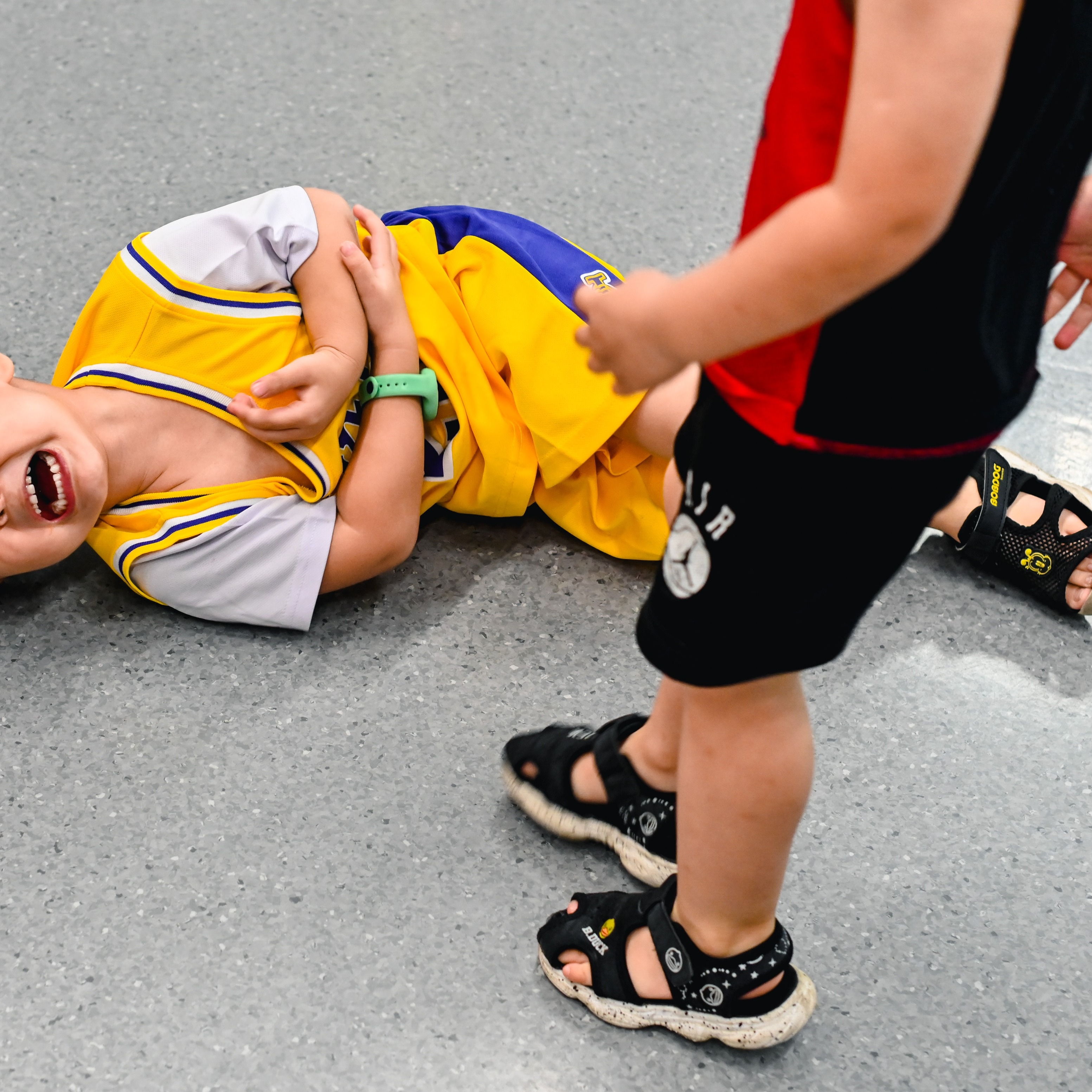
Disputes with children - How to manage conflicts properly
When people meet, conflicts arise. Everyone has different boundaries, needs, feelings and opinions, so it can quickly come to a clash. Children in particular do not yet have appropriate strategies for dealing with their strong feelings and conflicts. This article offers you clarifications on conflicts and how to guide your children well to find solutions peacefully.
Conflicts among children - that's why children argue
In order to be able to intervene in a dispute between children in the best possible way, you first need to know why your child is arguing. While school children can usually already explain why the conflict happened, younger children have more difficulties with this. Children under six have little impulse control and they feel one emotion after another. This means that when they have a strong feeling, they are completely taken in by it. They are not yet able to think an inner dialogue - an "on the one hand and on the other hand".
The most common causes of quarrels among children are:
This is mine: Young children in particular have yet to learn what is "mine" and "yours". Because of their childlike immaturity, they identify fully with their things. For young children, sharing is like giving away a part of themselves. Accordingly, it is enormously difficult for young children to share.
Territory fights: Similar to toys, it is also the case with the "territory", i.e. the child's environment. No one is simply allowed in, but the boundaries of other children are not taken seriously because they still lack the necessary empathy.
Pent-up anger: Sometimes the bad mood just has to come out, children have not yet learned how to do it properly. This means that arguments are inevitable.
Feeling big: Especially with siblings, it happens that the bigger child wants to "build himself up" by arguing with the little one in order to feel bigger or stronger.
Attention: One thing is certain. When you argue, you have attention. So sometimes children try to get attention by instigating conflicts. But boredom can also be a reason. When you argue, at least there is "something going on".
Exploring the boundaries of others: Conflicts often arise when children want to feel the limits of the other person. The position within a group and the introduction of one's own ideas can also be occasions for conflict.
How to react correctly when your child is fighting
If your child actively involves you in an argument, be careful at first. Your child may rely on you to "win" the argument, i.e. to put the other child in his or her place. You should never "blame" anyone in a conflict. Focus on helping the children find a solution.
If you notice from the tone of your children's voices or the fierce back-and-forth discussion that the situation is about to tip over and one of them is about to either hit the other or one of them is about to start crying, intervene immediately. Call out right away, "Hey there, you two, do you need my help?" This puts the focus on you for a moment and away from the conflict. The children get a little distance and the situation will probably not turn out so violent.
First, let the tempers cool down a bit. Try to discuss with the children how the argument came about, how they both felt and what they thought was stupid about the other person. Listen to what the children tell you and summarise what they said in your own words. Try to find out the underlying needs. Create understanding for the other side. In doing so, the children also learn that communication and listening are very important in resolving a conflict.
Always keep in mind that you only support. You are not a judge, advocate or protector. Do not take sides or rush to punishment. You should rather act as a mentor or a bridge builder. You help the children reconnect with each other.
If the children are already older and want to and can solve the problem themselves, you should stay out of it completely and just be the silent observer.
Do not ignore conflicts with children
Children argue. You have probably heard this sentence many times or maybe you have even said it yourself. Yes, children argue. But you should not ignore or simply dismiss them. Children cannot express their problems and feelings as well as adults. An argument can overwhelm your child. By showing your child how to argue properly, you teach him or her how to resolve conflicts well. Without shouting and escalation.
When does an argument go too far?
If an argument escalates, you must of course act differently. If a child becomes violent, you must of course immediately go between the children. It is best not only to do this verbally, but to use your whole body to separate the children.
It is similar with bullying. This is no longer a normal argument, but a really serious and dangerous issue. In this case, you should seek help for you and your child to find a long-term solution.
In normal disputes there is no reason for this. A few simple tips can help here.
10 tips on how to deal with conflicts between children
Take disputes seriously and address them
Listening to each child and giving them the opportunity to tell their own perspective
Do not take sides
Listen and describe what happened
Carry the attitude: Every child is doing what is best for him/herself. It is not acting out of ill will towards the other children, but wants to fulfil an important need for itself with its behaviour. It is important to find out what these needs are
Respect different truths: A "who's right" discussion will not get you anywhere. Everyone lives their life from their own perspective and forms their own story. Therefore, give the children the certainty that their experience was right for them. Even if the other person experienced it differently
If necessary, support them in finding a solution. However, do not impose your solution on the children. Sometimes a solution sounds unfair to us adults. If the solution suits both children, let them implement their solutions. If the children can do it on their own, you stay out of it.
The younger the children are, the more they need your support in implementing the agreed solution.
Role model effect: Make sure that you argue in such a way that your child can learn from it
Encourage the children to talk to each other and share their needs. They will not yet have an "adult conversation" about their disagreement. But we can guide them to formulate their expectations and needs, even in simple sentences. This also creates clarity in children.
Conflicts with children: This is how it works
You won't be able to keep your child away from arguments. Conflicts are part of life. Guide the children when they argue so that they can deal with it constructively in the future and, above all, find solutions.
With children from about 5 years it is very helpful to talk about the past conflicts with a small time gap. Please do not talk about it in the heat of the moment, but perhaps during play or at bedtime. Give your child another opportunity to talk about the conflict without judging him/her. Remind your child of values of appreciation and kindness without putting him/her down. Also show understanding that things may not have worked out so well in this conflict, but that together you are learning how to resolve conflicts peacefully and appreciatively. Talking to each other again is very healing, does not burden your child and promotes social competence and the ability to deal with conflict.
#talkinghelps

About the author
Birgit Gattringer is a familylab trainer according to Jesper Juul, a qualified mental trainer and a qualified child and youth mental trainer. She is herself a mum of two boys and passes on her knowledge on her website.
Her heart's desire is to create a harmonious family environment for children in which they can grow up self-confident and strong for life.
